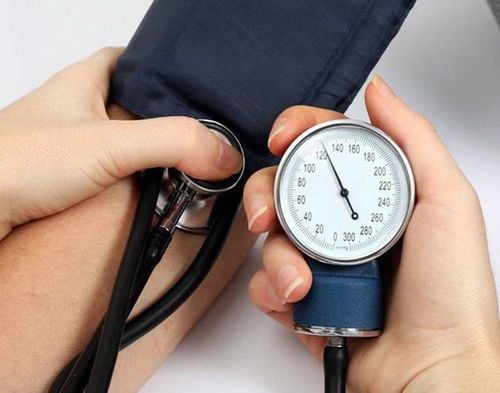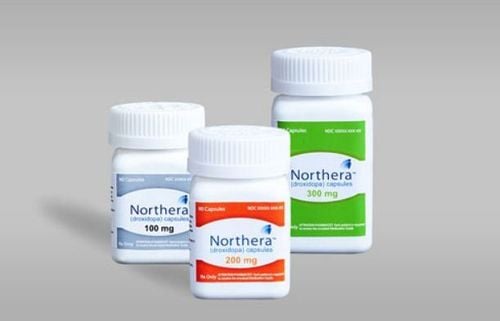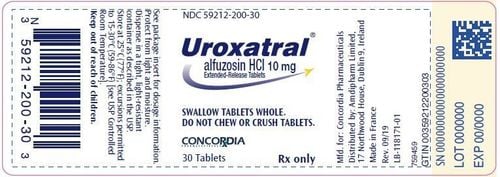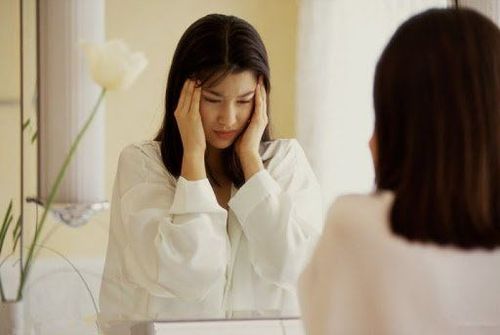This is an automatically translated article.
The article is professionally consulted by BSCK II Nguyen Quoc Viet - Department of Medical Examination & Internal Medicine - Vinmec Danang International General Hospital.
Blood pressure is the pressure within the blood vessels that the heart can overcome to pump blood out into the circulatory system. Any excessive fluctuations in blood pressure are a potential health risk. Although not mentioned as much as high blood pressure, low blood pressure can still be dangerous due to insufficient blood supply to the heart, brain and other organs.
1. How much blood pressure is low?
Blood pressure is represented by two numbers. The first number that is usually higher is the systolic pressure, or pressure in the arteries as the heart contracts and pushes blood. The second, smaller number is the diastolic pressure or the pressure in the arteries when the heart rests between contractions. A normal blood pressure reading is 120/80 mmHg (systolic/diastolic pressure).
Low blood pressure is when the systolic blood pressure is less than 90 mmHg and/or the diastolic pressure is less than 60 mmHg, this result is measured when the body is at rest.
A normal healthy person with low blood pressure readings usually has no symptoms and does not need treatment because it is not a disease. However, when being diagnosed by a specialist with low blood pressure, the patient needs to be monitored and treated, especially for the elderly, chronic patients because low blood pressure can be dangerous because the blood is not healthy. enough to reach the heart, brain or other parts of the body.
Trắc nghiệm: Huyết áp của bạn có đang thực sự tốt?
Huyết áp cao hay thấp đều ảnh hưởng đến tình trạng sức khỏe con người. Để biết tình trạng huyết áp của bạn có thực sự tốt không, hãy làm bài trắc nghiệm sau đây để đánh giá.2. Causes of low blood pressure
There are many causes of low blood pressure such as:Physiologically low blood pressure due to genetics or living in high mountains. When there is not enough blood volume in the blood vessels, it also causes low blood pressure. This happens when there is prolonged blood loss or dehydration, meaning the body doesn't have the necessary amount of fluid to circulate. Dehydration can be caused by: not drinking enough water, severe diarrhea or vomiting, and sweating a lot. Low blood pressure due to impaired heart function leads to weak heart contractions. The autonomic nervous system does not regulate itself, leading to postural hypotension and some hormones in the body that are responsible for controlling blood vessels not working properly. Low blood pressure in pregnant women is quite common. Underactive thyroid (hypothyroidism): A lack of thyroid hormone also causes low blood pressure. Diabetes or low blood sugar (hypoglycemia) Lowering blood pressure due to exhaustion, heat, or heatstroke Certain medications for the condition, such as medications for high blood pressure, depression, or Parkinson's... Can also cause low blood pressure Long-term stressful life, polluted environment, tendency to abuse toxins, obesity, malnutrition... can all cause low blood pressure. Low blood pressure can be accompanied by another problem such as: diabetes, Parkinson's, heart failure, arrhythmia, enlarged or dilated blood vessels, liver disease... Also, elderly people also often have a higher risk of developing low blood pressure than younger people.
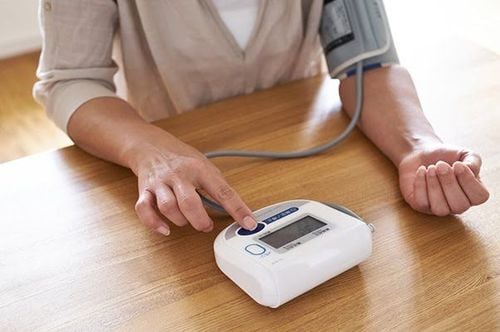
In some cases, blood pressure can drop suddenly due to:
Acute blood loss due to hemorrhage Lower body temperature - hypothermia. Excessive body temperature can cause heat stroke Blood infection (severe sepsis) Severe allergic reaction also known as hypersensitivity reaction.
3. How to prevent low blood pressure?

To prevent low blood pressure as well as improve symptoms of the disease, we should:
Limit staying up late Should keep the body warm while sleeping Limit going out in the hot sun Whenever you want to change your position to move Move step by step, don't climb high... Maintain light and moderate exercise like walking. Use a low pillow when going to bed For the elderly from 50 years of age and older, it is necessary to monitor blood pressure regularly. Attention should be paid to the abnormal manifestations of the body Regularly monitor blood pressure. If you are not sure about your blood pressure, you should seek the help of a doctor at a reputable hospital. Participating in Cardiovascular Screening Packages to implement blood pressure index assessment methods deployed by Vinmec International General Hospital is a wise way to protect the health of you and your family.
Please dial HOTLINE for more information or register for an appointment HERE. Download MyVinmec app to make appointments faster and to manage your bookings easily.





